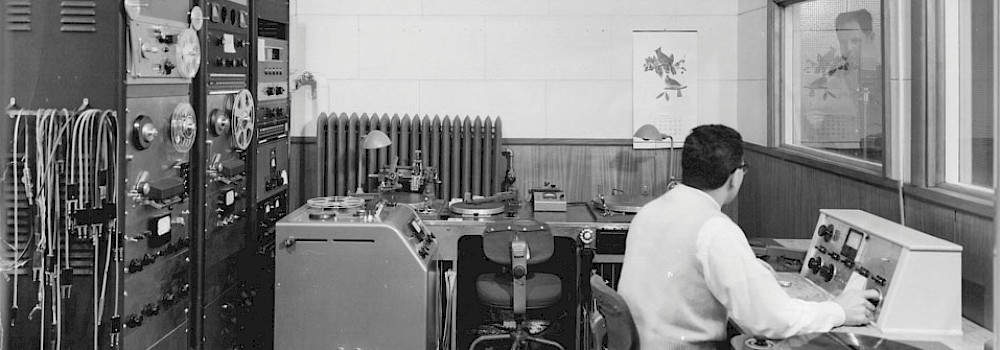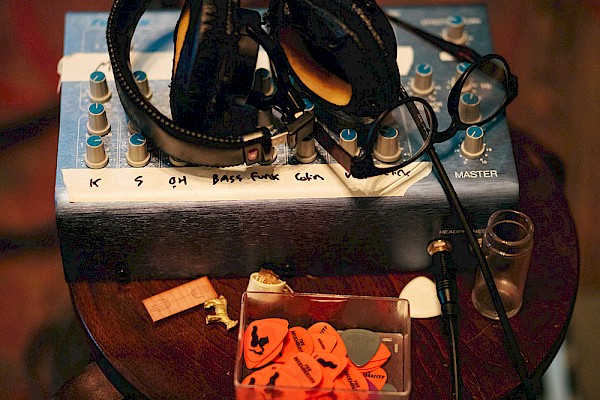 Behind the scenes at a Decemberists' session: Photo by Jason Quigley / Lead photo above courtesy of the Robert M. Lindahl Family: The control room of SW Portland’s Northwestern Incorporated, Motion Pictures and Recording, where The Kingsmen recorded “Louie Louie”Increasingly powerful (and user-friendly) home recording software has given aspiring recording artists and passionate hobbyists a taste of just how good their music can sound. Savoring the flavors that recording pyrotechnics can offer, more and more casual music makers are exploring the possibilities of taking their game to the next level at a professional recording studio.
Behind the scenes at a Decemberists' session: Photo by Jason Quigley / Lead photo above courtesy of the Robert M. Lindahl Family: The control room of SW Portland’s Northwestern Incorporated, Motion Pictures and Recording, where The Kingsmen recorded “Louie Louie”Increasingly powerful (and user-friendly) home recording software has given aspiring recording artists and passionate hobbyists a taste of just how good their music can sound. Savoring the flavors that recording pyrotechnics can offer, more and more casual music makers are exploring the possibilities of taking their game to the next level at a professional recording studio.
The same technical advances that have vastly improved the quality of home recording projects have helped put professional studios in reach of mere mortals lacking unlimited funding. (That, and the many quality studios operating around Portland.) With studio rates hovering around $60 an hour (with discounts for multi-day bookings), it’s conceivable to knock out a handful of songs for under $1,000 (plus a bit extra for mastering). One studio (Bathrobe Records) even promotes a four-track EP—recorded and mixed—for $400!
A number of questions arise for the studio debutante. Will the end product be that much different from what you can churn out with GarageBand or Pro Tools at home? How should you begin assessing potential studio partners? What are proper expectations for the experience? And how can you best prepare for the moment when the engineer signals that they’re recording?
To answer a few of these questions, I spoke to some recording studios around Portland who cater to non-professionals and professionals alike.
What Do You Get from the Studio Experience?
The quality and possibilities of home recording have come so far in recent years, one can’t help but ask the question: Why bother with the expense of a studio? A common refrain from the engineers I interviewed is simple: You’ll get better sounding tracks.
“A professional studio is better isolated from environmental noise, and recording in an acoustically treated space versus an untreated bedroom or basement makes a huge difference in the sound quality,” says Sacha Müller, an engineer in residence at Dead Aunt Thelma’s Recording Studio, in Portland’s Sellwood neighborhood.
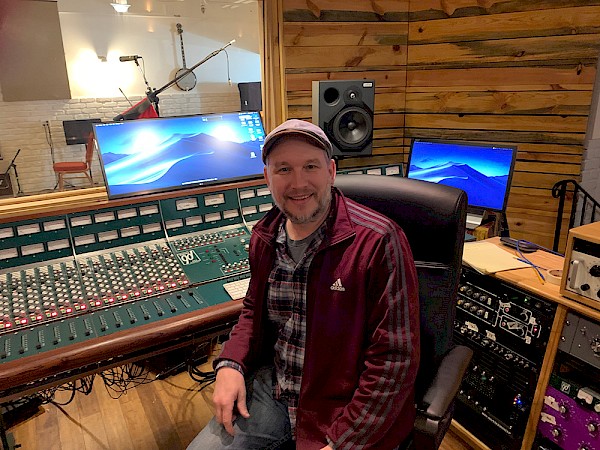 B-Side Studios' Steve Strauss in his subterranean space in southeast“The ability to record drums well is another differentiator,” offers Steve Strauss of B-Side Studios in inner southeast. “That’s not to say it can’t be done at home, but it’s a tricky proposition. A pro studio will also have higher quality microphones, pre-amps and conversion than the average home recording setup.”
B-Side Studios' Steve Strauss in his subterranean space in southeast“The ability to record drums well is another differentiator,” offers Steve Strauss of B-Side Studios in inner southeast. “That’s not to say it can’t be done at home, but it’s a tricky proposition. A pro studio will also have higher quality microphones, pre-amps and conversion than the average home recording setup.”
“It really depends on the project,” opines Nalin Silva of Revolver Studios in North Portland. “There are ‘bedroom’ projects and [then] those that benefit from a professional studio with bigger rooms, better gear and professional ears and eyes. It just depends on what you want to do and your budget.”
An intangible part of the studio experience is the liberation music makers might feel from the laptop, allowing you to focus on the sounds you’re trying to make. “When a creative-type songwriter comes into the studio, they can fully be an artist and not have to worry about any of the complicated technical aspects of recording,” Müller adds. “In my experience, many of those folks become extremely stifled creatively by having to struggle with all the details of getting a decent recording in the midst of crafting a song or an album. Multitasking is a myth. Most people who try to wear too many hats at the same time end up performing all the attempted tasks poorly.”
How Should You Evaluate A Recording Partner?
As with any major purchasing decision, a well-informed consumer will make the most satisfying recording studio choice.
“When you begin looking at studios, you should have an idea for what you want in the space—whether it’s for production, vocals or the overall vibe for a creative space,” offers Jason Navarrete from Burn Money Music, which focuses on hip-hop from its space in inner SE Portland.
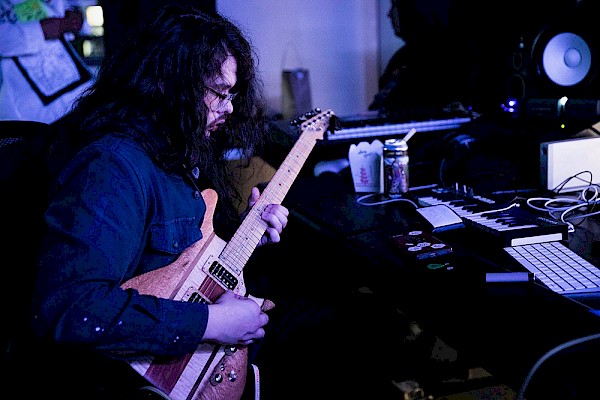 Burn Money Music's Jason Navarrete“I highly recommend taking a tour of various studios before booking anything,” Müller adds. “You can’t get a feel of the vibe of the room from a website. When you’re there, ask to hear some examples of music they’ve recorded in the space.”
Burn Money Music's Jason Navarrete“I highly recommend taking a tour of various studios before booking anything,” Müller adds. “You can’t get a feel of the vibe of the room from a website. When you’re there, ask to hear some examples of music they’ve recorded in the space.”
Everyone I spoke with emphasized the importance of establishing a rapport with the studio staff you’d be working with. “An environment that you can feel comfortable in is super important,” Strauss says. “You want to make sure that the potential producer/engineer understands your vision.”
“I would honestly say that finding the right engineer/producer is more important than the recording facility,” Müller continues. “Working with someone who has a good personality, who digs your music and wants to work with you makes a huge difference. That person will work harder for you than the guy just doing it for a paycheck and definitely more than the guy who doesn’t understand or like your music.”
“I think it’s important to find someone you connect with personally,” ventures Brendan Jones of Bathrobe Records (part of The Big Legrowlski) just off the Park Blocks in NW Portland. “But they need to be honest. Don’t look for someone who says everything is great, but for someone who can help elevate what you’re doing, who can pull the idea out of the song.”
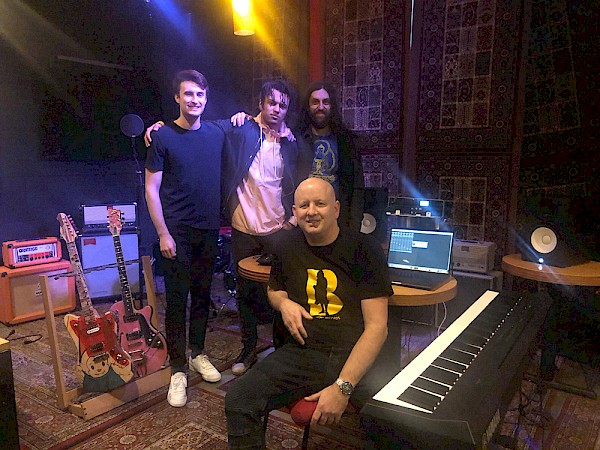 Bathrobe Records' Brendan Jones in front with company producers Max Perryman, Christian Crawford and Trevor GiulianiGood lines of communication are also important. “You need to have candid conversations about pre-production, recording schedule, budgets, and a clear understanding of timelines,” Silva says.
Bathrobe Records' Brendan Jones in front with company producers Max Perryman, Christian Crawford and Trevor GiulianiGood lines of communication are also important. “You need to have candid conversations about pre-production, recording schedule, budgets, and a clear understanding of timelines,” Silva says.
What Should You Do to Be Ready?
“How do you get to Carnegie Hall?” the old saw goes. “Practice!” The same is true for getting the most out of your recording.
“Rehearse, rehearse, rehearse!” implores Müller from Dead Aunt Thelma’s. “Figure out song tempos ahead of time. Make sure each song is in the best key for the lead singer's voice. Have your arrangements finalized. Figure out how you want to start and end each song. Buy new strings for guitars and basses no sooner than a few days before the session. New strings the day of are a big no-no. Fresh heads for the drums are fine the day before or even the day of. If you plan to record to a click track, you need to absolutely have practiced doing so, or don’t even bother trying it in the studio—it will waste time and money. Have your lyrics finalized. Print any sheet music or charts out ahead of time. Get a good night’s rest the day before. And bring snacks!”
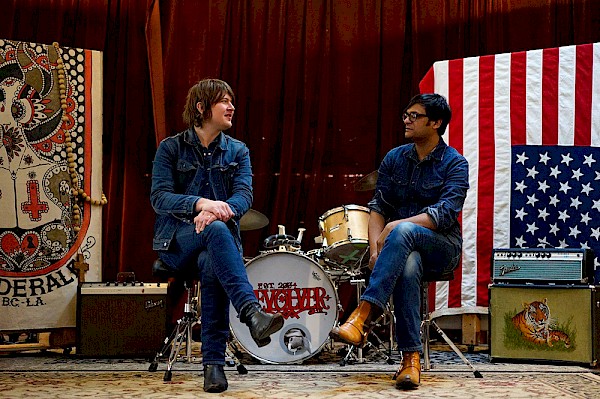 Collin Hegna and Nalin Silva of Revolver StudiosNot only should you know the tunes you plan to record, the studio should know them too. “It’s a very good idea to send demos to the engineer who will work with you, or get the engineer to come to a practice or a show,” Silva from Revolver adds. “The first time the engineer hears you should not be on your first take in the studio.”
Collin Hegna and Nalin Silva of Revolver StudiosNot only should you know the tunes you plan to record, the studio should know them too. “It’s a very good idea to send demos to the engineer who will work with you, or get the engineer to come to a practice or a show,” Silva from Revolver adds. “The first time the engineer hears you should not be on your first take in the studio.”
Planning is almost as important as being well-rehearsed. “Up front, it’s a good idea to block out consecutive dates for putting down basic tracks,” offers Strauss from B-Side. “This will save on setup time and help you focus on the process. Having a good blueprint for overdubs and edits is also important. The more detailed notes the band can take while listening to basic tracks outside of the studio, the more prepared they can be for completing edits and overdubs.”
Being tight in terms of chops and arrangements is important. But being loose in terms of your attitude is also advised. “You need to know what your song should be and be ready to execute; but also be loose in terms of being flexible to new ideas,” Jones from Bathrobe shares. “I think it’s also important to be yourself. Some people imagine how they ‘should be’ in a recording studio. Don’t. Be who you are.”
What are the most common misperceptions about the recording process?
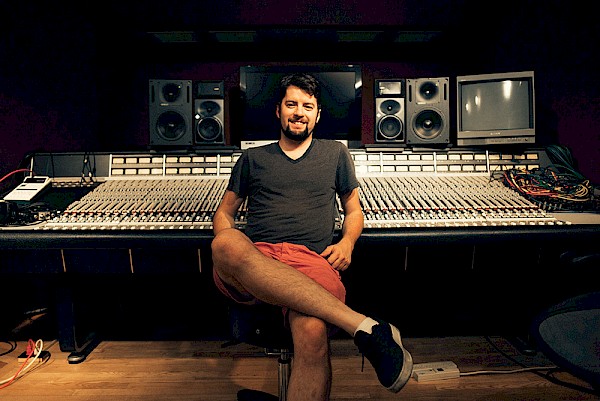 Sacha Müller at Sellwood's Dead Aunt Thelma’s Recording StudioMüller sums up the sentiments of the other interviewees: “Many amateurs underestimate the amount of time the process will take,” he says. “They don’t take into account the amount of time the setup, sound check and teardown will take. A lot of people think that we can magically ‘fix’ a lot of things. It is true that engineers can pull off some incredible stuff with DAW editing; however, it’s no excuse to be underprepared. If you go into the studio with the mindset that someone can ‘fix it in the mix’ (a term I hate hearing), then you’ve already shot yourself in the foot.”
Sacha Müller at Sellwood's Dead Aunt Thelma’s Recording StudioMüller sums up the sentiments of the other interviewees: “Many amateurs underestimate the amount of time the process will take,” he says. “They don’t take into account the amount of time the setup, sound check and teardown will take. A lot of people think that we can magically ‘fix’ a lot of things. It is true that engineers can pull off some incredible stuff with DAW editing; however, it’s no excuse to be underprepared. If you go into the studio with the mindset that someone can ‘fix it in the mix’ (a term I hate hearing), then you’ve already shot yourself in the foot.”
Navarrete from Burn Money offers some excellent parting advice: “Making music is fun and should stay fun. Don’t let your nerves get you overwhelmed because you are somewhere new. Be as prepared as you need to be for your creative process. The process is all up to you!”

